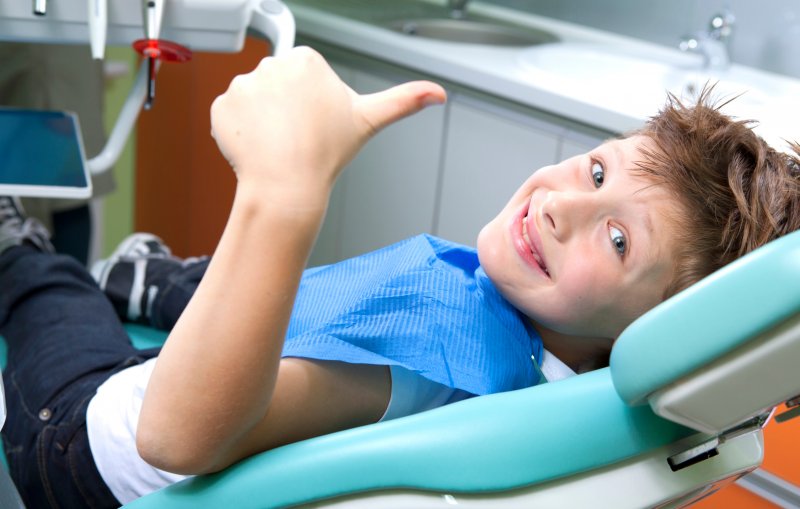
Many children suffer from a fear of dentists or dental work in general, and that fear can make even routine appointments difficult and stressful for everyone. As such, it’s not uncommon for parents to ask for their children to receive sedation so that they can stay relaxed during their dental visits. However, children with particularly severe dental phobias often need more than just regular sedation; they may have to be put to sleep altogether with general anesthesia. Could your child benefit from this treatment?
What is General Anesthesia?
General anesthesia is a type of anesthesia that affects the whole body and puts the patient in a state of unconsciousness. This way, the patient won’t feel anything during the procedure, and they won’t remember any of the details afterwards. Obviously, general anesthesia is much stronger than normal dental sedation, which is why it’s only performed by specially trained individuals. If your child does receive general anesthesia, you can rest assured that the dental team will continually monitor their vital signs to make sure they stay safe at all times.
How Does General Anesthesia Work?
Before your child has general anesthesia performed at their next appointment, you’ll need to have a consultation with their dentist and/or anesthesiologist to decide if it’s really the best choice. If it is, you’ll be given instructions to make sure that your child is prepared on the day of the procedure; for example, they’ll need to start fasting at a certain point before their appointment.
On the day of their appointment, your child will receive the anesthesia via IV, injection, or a mask. While under the effects of anesthesia, your child will be in a dreamless sleep from which they’ll only awaken once the dentist completes their care. You can expect your child to remain groggy for at least a few hours; plan on monitoring them until the effects fully wear off.
Is Your Child a Candidate for General Anesthesia?
General anesthesia isn’t necessary for every patient or every procedure. If, for example, your child is only a little nervous about their dental care, nitrous oxide is often enough to make their visits more pleasant. But if your child has an extreme fear of the dentist, or if they’re completely uncooperative, general anesthesia may be the best option for making sure they can safely receive care. Your child’s dentist may also recommend general anesthesia for extensive treatments where your child would have a hard time sitting still through the whole thing.
The decision to have general anesthesia done at your child’s dental appointment is not one to be made likely. Call your dentist today and let them know about your child’s situation so that you can make their next visit a stress-free one.
About the Author
Dr. Homer Sedighi is proud to have had a hand in creating countless happy and healthy smiles in his growing patients. He is a Board-Certified Pediatric Dentist affiliated with several hospitals in the area. As an Associate Professor at the Washington University School of Medicine and a faculty member of Mercy Children’s Hospital, he’s able to offer general anesthesia to his young patients. To schedule a consultation for your little one with Dr. Sedighi at his Chesterfield practice, visit his website or call (636) 777-2777.